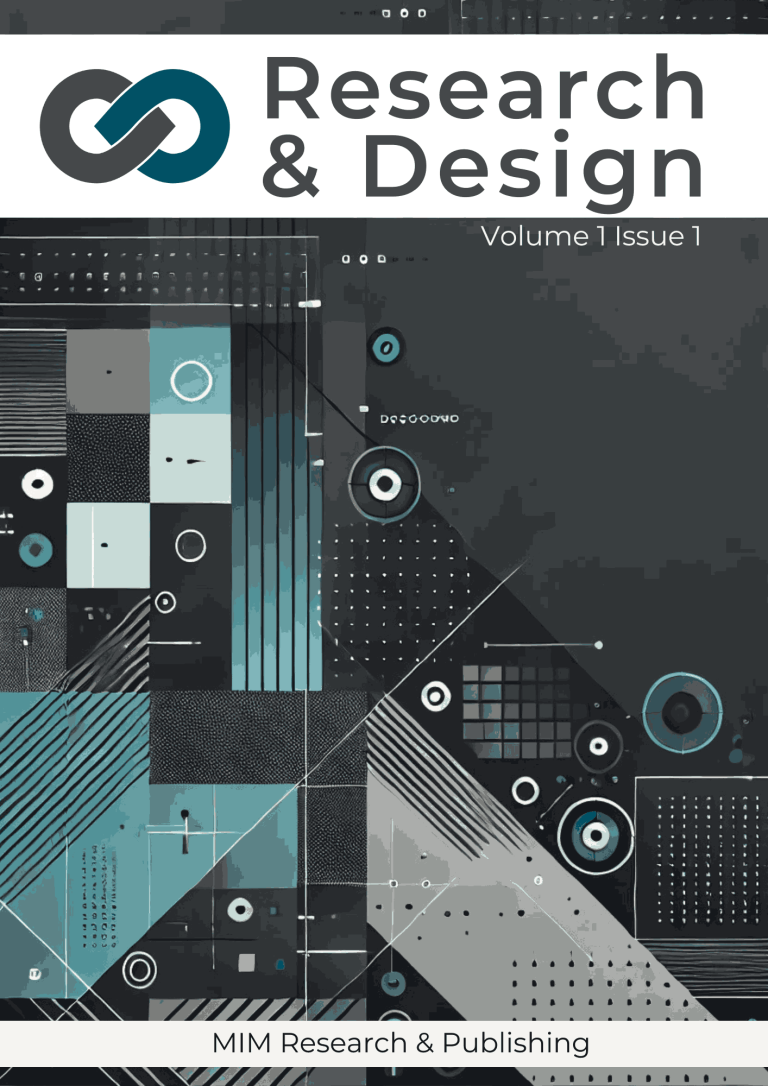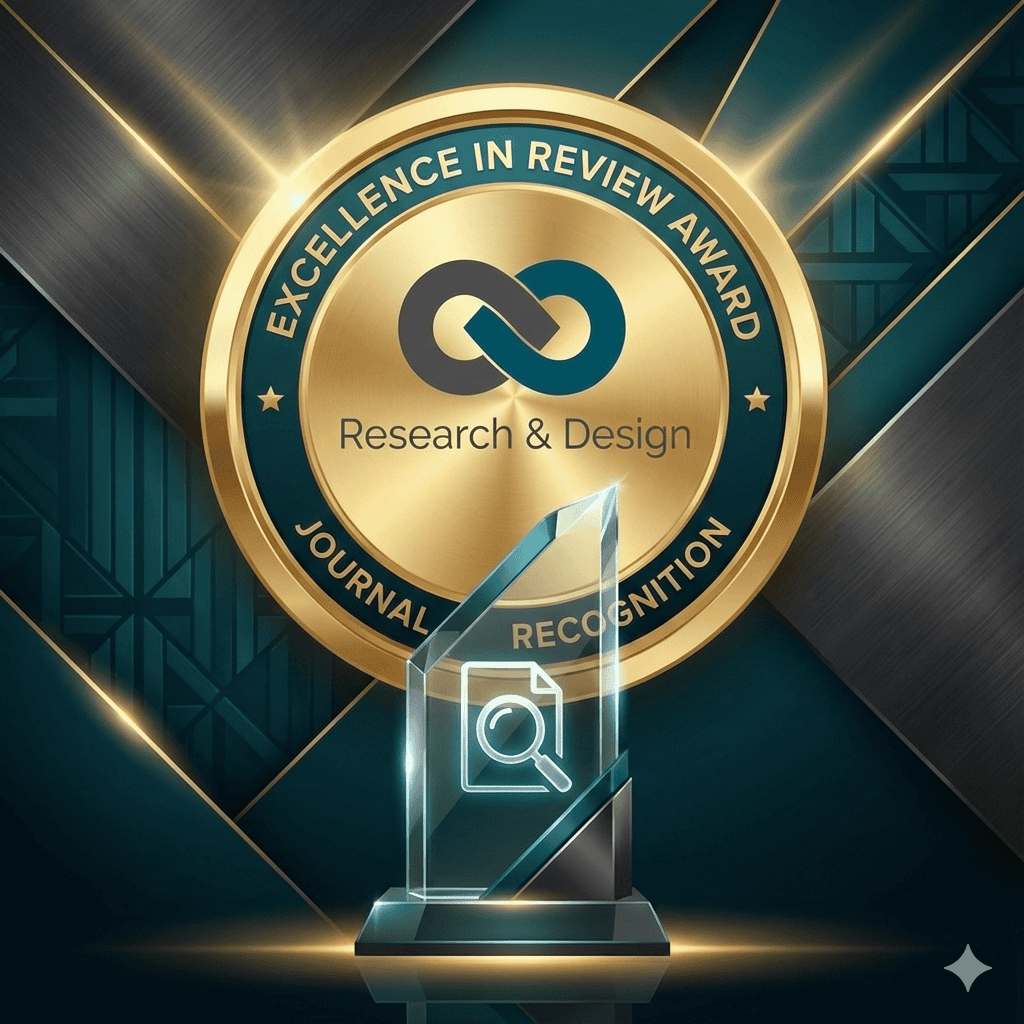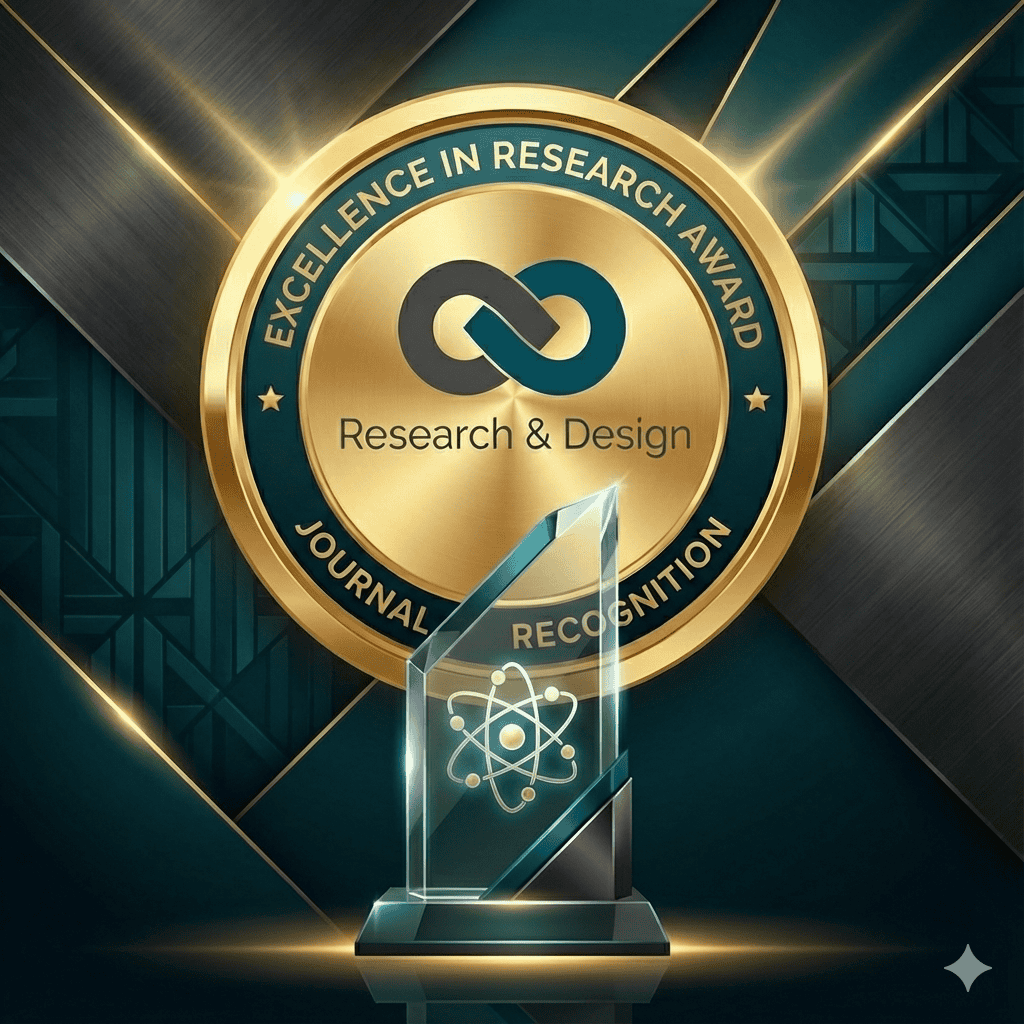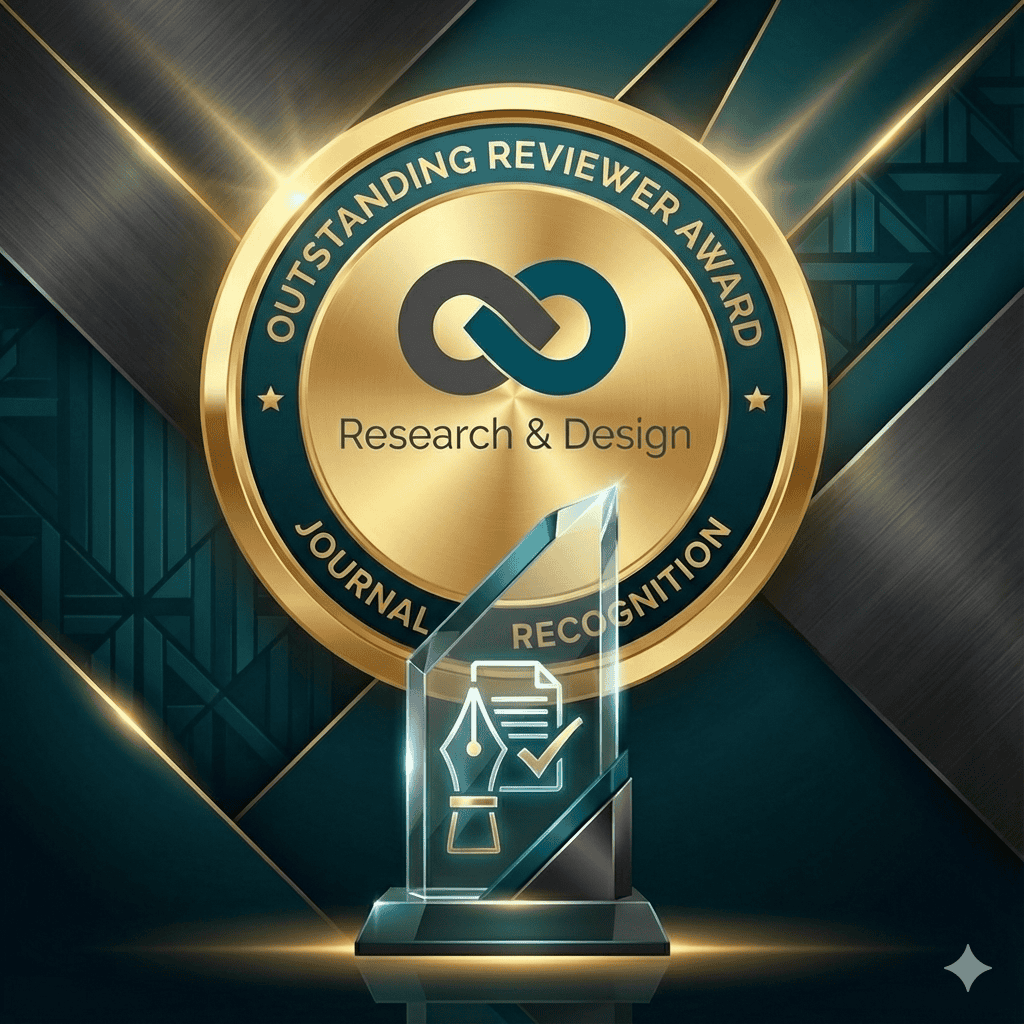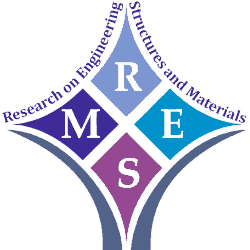Publication Ethics
Publication Ethics and Publication Malpractice Statement
The Research & Design (REDE) adheres to strict ethical guidelines throughout the editorial and publication processes. Similarity detection software is used to identify plagiarism, and any manuscript with significant overlap with other publications or identified malpractices is immediately rejected.
The journal follows the ethical principles outlined by the Committee on Publication Ethics (COPE), which serve as guiding documents for addressing ethical issues. Further details on these guidelines can be found on the COPE website.
Below are the responsibilities of all parties involved in the publication process, in line with COPE guidelines:
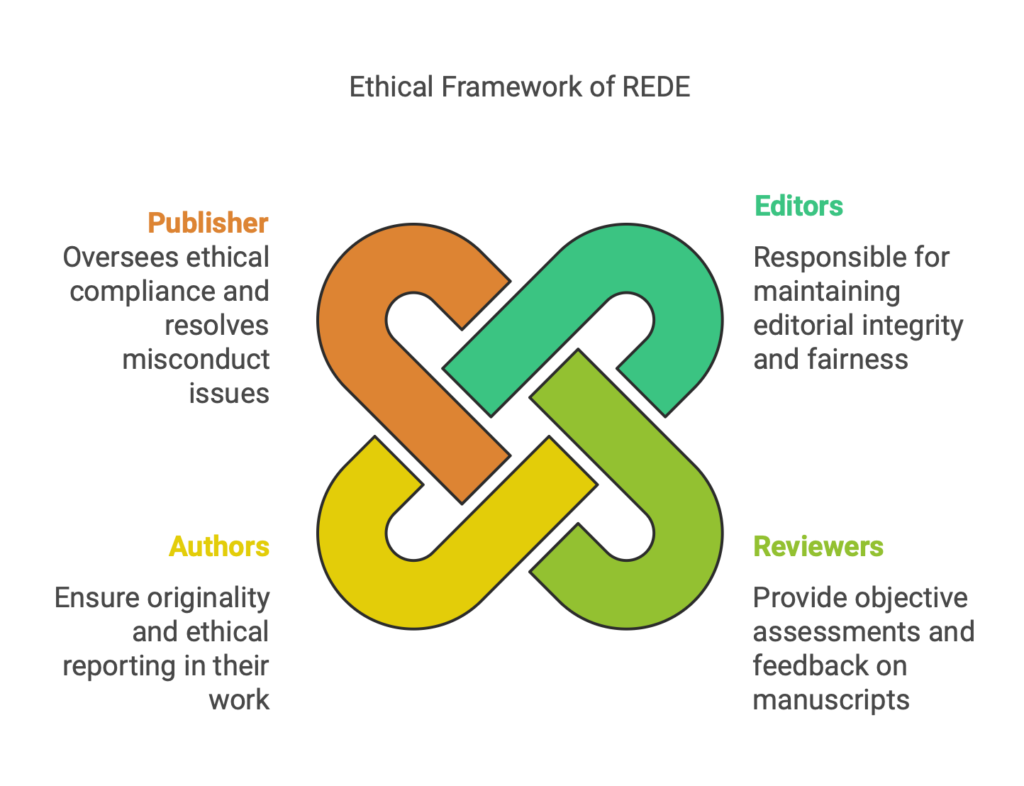
Responsibilities of Editors
Disclosure and Conflicts of Interest
Editors and editorial board members must not use the information gained from the editorial process for personal advantage. Any potential conflicts of interest must be disclosed, and editors must recuse themselves from decisions where conflicts exist.
Confidentiality
Editors and editorial staff must not disclose any details about a submitted manuscript to anyone outside the appropriate individuals involved in the process.
Fair Play and Editorial Independence
Submissions are evaluated based solely on their academic merit, without discrimination based on race, gender, sexual orientation, ethnicity, religion, or political philosophy. The Editor-in-Chief has full control over editorial content and publication scheduling.
Publication Decisions
Manuscripts are reviewed by at least two qualified experts. The Editor-in-Chief evaluates the scientific validity, originality, and relevance of the manuscript, along with adherence to legal and ethical standards, before making a final decision.
Investigations and Cooperation
Editors actively investigate allegations of ethical misconduct and collaborate with journal staff to resolve any such issues. Necessary corrections or retractions will be published in cases of proven misconduct.
Responsibilities of Reviewers
Contribution to Editorial Decisions
Reviewers assist editors by providing objective assessments of manuscripts and offering constructive feedback to authors.
Promptness
Reviewers unable to meet deadlines or lacking expertise in the subject matter should notify the editor promptly and withdraw from the process.
Confidentiality
Manuscripts under review must be treated as confidential and not shared with others without authorization.
Standards of Objectivity
Reviews must be unbiased, constructive, and supported by clear arguments.
Acknowledgment of Sources
Reviewers should ensure proper citation of previously published work and report any substantial overlap with other publications.
Disclosure and Conflicts of Interest
Reviewers must avoid using information from the manuscript for personal benefit and must disclose any conflicts of interest.
Responsibilities of Authors
Reporting Standards
Authors must present accurate and complete accounts of their research, allowing replication by others. Fraudulent or inaccurate statements are unacceptable.
Authorship
Only individuals who made significant contributions to the study should be listed as authors. All authors must approve the final manuscript before submission.
Data Access and Retention
Authors should retain raw data for at least ten years and provide it if requested during the editorial process.
Originality and Plagiarism
Authors must submit only original work and properly cite all sources.
Multiple and Redundant Publications
Simultaneous submissions to multiple journals or previously published works are not permitted.
Ethics Committee Approval
For research involving humans or animals, ethical approval must be obtained and documented in the manuscript.
Disclosure and Conflicts of Interest
Authors must disclose any potential conflicts of interest and sources of funding for the study.
Fundamental Errors
If authors identify errors in their published work, they must promptly inform the journal and cooperate to issue corrections or retractions.
Responsibilities of Publisher
The publisher ensures that all cases of suspected misconduct, plagiarism, or unethical behavior are thoroughly investigated and resolved in collaboration with the Editor-in-Chief. In cases of proven misconduct, appropriate actions, such as issuing corrections or retracting articles, will be taken. The publisher remains committed to maintaining fairness and inclusivity in its publishing activities, free from discrimination.
